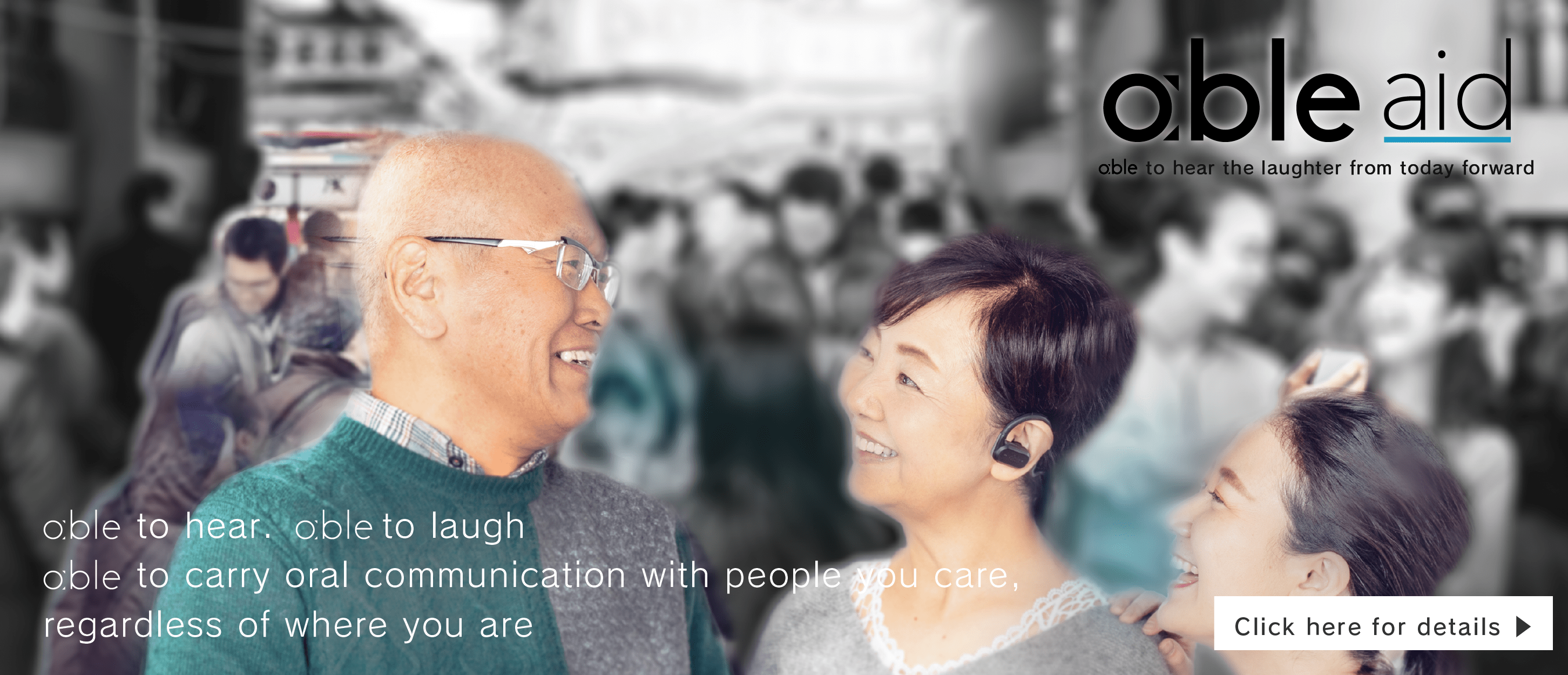
Music should be just as fun for people with hearing loss
Earphones are easy to carry around and I am sure everyone has at least one set.
Earphones let you listen to your favorite songs while going to school or commuting to work, and its market is steadily expanding. Wireless earphones in particular are reported to expand its market by 270% by 2025.
Earphones provide convenience, but were you aware that listening to loud music on earphones actually leads to hearing loss?
In this episode, I did some research on how to enjoy music without having to worry about your ears.

Author:Riyo Aomoto
Global Writer
Index
A rapidly increasing hard of hearing population
According to news reports by NHK, there is an increasing number of people with hearing disabilities around the globe. They say that out of people around the world aged between 12 and 35, about 1.1 billion people which account for nearly half of those population, are exposed to excessively loud noise for an extensive period of time and risk losing hearing ability.
When you listen to music on your earphones, what volume do you set them to?
You may already be lining up in the queue for “headphone-related hearing loss”.
By constantly listening to loud music, your hair cells that transmit sound are gradually destroyed and this leads to the hearing loss.
For people living in modern times who listen to longer hours of music, this symptom must feel quite familiar.
But headphone-related hearing loss is not the only problem that could be caused by hearing loud music.
Age-related hearing loss and the risks of unaware progression
Age-related hearing loss refers to conditions in which aging causes disorder in ears and brain functions and prevents one from hearing conversations with ease.
Stress based on customs and sound environment over the years is said to cause problems in the inner ear and lead to age-related hearing loss.
You might be thinking you are still young for this.
But listening to loud music during youth may well impose stress on your ears leading to a progression of the hearing loss.
Hearing abilities are said to begin weakening with age after your twenties.
You need to avoid listening to loud music to protect your ears.
How to prevent headphone-related hearing loss
What can we do to prevent headphone-related hearing loss?
According to e Health net, a website on health information and prevention of lifestyle-related diseases hosted by the Ministry of Health, Labour and Welfare, the WHO recommends the following when listening to music on earphones:
- Lower sound, take rests in between
- Limit use of earphones to under 1 hour per day
- Select headphones and earphones with noise cancelling functions which reduce ambient noise and consequently the sound volume as a whole.
Above options seem easy enough to continue consciously.
How effective are bone-conduction earphones, that do not rely on eardrums, as a means to preventing hearing loss?
Bone-conduction is better for ears?!
Bone-conduction headphones refer to how one hears the sound through vibration of nearby bones and not through eardrums.
It is seemingly an effective way to reduce impact on your ears.
According to Urban Life Metro, bone-conduction headphones still carry the vibration to the cochlea inside your inner ear and there is no medical evidence to support this claim that bone-conduction earphones “reduce the risk of a hearing loss.”
At the same time, bone-conduction headphones seem like an effective way to avoid raising the sound volume regardless of ambient noise.
Just like headphones with noise cancelling functions, bone-conduction headphones may help you avoid listening to loud sounds, so it may be safe to conclude that these too are earphones that care for your ears, as long as you use them correctly.
Author’s note
Earphones are part of our necessities just like smartphones.
But we have learned that wearing them inappropriately can cause considerable damage to our ears.
While sound quality and design may be important, it is critical that earphones are not used for long consecutive hours and that you choose earphones with less burden on your ears so you can stay healthy and maintain your hearing ability.
I encourage you to begin checking how you use your earphones.
References
BCN+R, “Wireless earphones global market to expand by 2.7 times by 2025, Fuji Chimera Research Institution,” 2020
NHK, “How do we prevent smartphone hearing loss?” 2019
e Health Net, “Headphone hearing loss (earphone hearing loss),” 2019
Urban Life Metro, “Hearing through bones and not eardrums: pros and cons of listening to music with bone-conduction earphones,” 2019
Kakogawa Medical Association, “Age-related hearing loss,” 2009
Ishikai-byouin, “About age-related hearing loss,” 2020
Author of this article

Riyo Aomoto
Global Writer
She spent four years covering the U.S. economy for the U.S. bureau of a Japanese news agency, writing and translating articles.
Based on the latest articles and papers on the U.S. economy, she provides a global perspective on Japan's hearing loss and the current state of hearing aids and sound collectors.
Products considered by the authors and readers of this article


